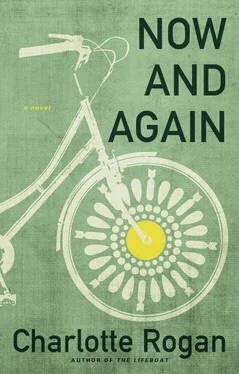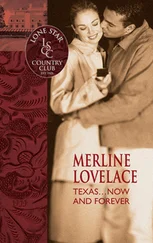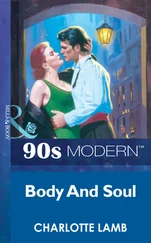“What happened to the lady?” asked Dolly.
“What lady?”
“The one who lost everything in the tornado.”
“I’ve often wondered that myself,” said the pastor. “I’m guessing she went on down the street to the State Farm office and got things sorted out with them, but I suspect she has her own story to tell. Wouldn’t it be a hoot if it included me! By all rights, though, we never should have met. She was in the wrong darn place. The wrong place for her, that is, but exactly the right place for me. That’s what you have to do, Dolly. God puts people into your life for a reason. Making sense of it is up to you.”
“I’ve been getting signs now too,” said Dolly. She told the pastor about the damaged babies and how she had felt called on to help them if she could. “Not that I can help those particular babies, but I want to do something to prevent other babies from suffering a similar fate.”
“Don’t you wait another minute,” said the pastor. “Those damaged babies are signs from God.”
Dolly’s sister was the worst of all — she was genuinely happy about the baby, which was so unexpected that it plunged Dolly into a cycle of guilt and self-recrimination. How was having a baby anything but selfish, particularly when she hadn’t provided it with the most basic of requirements, like a stable family and genetic health? How had it happened? But she knew how it had happened. Danny’s homecoming, the lapse of a single night, the burst of love and optimism and indiscretion. She tried to remember the optimism — and then she did remember it. She remembered the love too, but the love came wrapped around a bundle of sorrow and inside the sorrow was the unavoidable fact that the Danny who had come home was not the Danny who had left, which caused her teetering high spirits to plummet into yet another chasm of despair until she thought, A baby! A baby of my very own!
The next week the doctor handed Dolly an envelope. And there, tucked inside, were the two scientific reports. “Here you are then,” he said. “Let me know if you need more help.”
Dolly remembered the story the pastor had told her, and her scalp tingled to think that God was pulling her by the hair too. She had the information she wanted. Now she just had to decide what to do with it.
There was a series of anti-war protests coming up, so the captain bought a used minivan, and after we picked up Le Roy and Danny, we headed to DC.
— Joe Kelly
The protest was a disaster, but I just said, Fuck the protest, and posted some pictures online, and that’s when we had the idea for a website that would support the soldiers and tell the truth about the war.
— Le Roy Jones
So it was still us versus them, but now “them” was the politicians. “Them” was the employers and the bureaucrats and the doctors at the VA hospital and sometimes just the regular people on the street.
— Joe Kelly
After the trip to Washington, everything happened really fast.
— E’Laine Washington
8.1 Le Roy Jones
Le Roy liked to find clues in his environment for where he was and what he was doing there. Now, he was surprised to see so many people with missing limbs. Some stomped haltingly on artificial prostheses, while others occupied wheelchairs or hobbled along with the assistance of friends. He looked down at his own feet just to make sure, but they were laced up in their imitation Ice-Ts and he could wiggle his toes just fine.
“What are you protesting?” asked a bystander who was wearing a souvenir T-shirt with a silkscreen of the Lincoln Memorial on it.
“The war,” said Le Roy. “We want the president to stop the war.”
Penn Sinclair was there, and so were Danny Joiner and Joe Kelly. It seemed like an astonishing coincidence until the captain reminded him they were staying together at a motel out by the airport. Of course he remembered that. Of course he remembered the trip down in the minivan and the free Wi-Fi at the motel. “Oh, yeah,” he said. The moments after he hit his head could get mixed up, but the moments from before were crystal clear. He could picture himself riding in the truck with Rinaldi and Summers and their medic, Satch. He remembered trying to get the radio to work and telling the recruiter he was good with electronics and waking up in the hospital with bandages around his head that felt like reinforced concrete. He remembered the blood pounding in his ears and the doctor saying, “Hey there, cowboy. You’ve got a pretty hard head,” which was what the doctor said every time he saw him. He remembered the rehab guy hauling him out of bed long before he was ready. He remembered fiddling with the volume on the radio and the captain saying the convoy was doubling back and heading west and someone asking how much farther to the school, and then the blood was pounding in his ears and the doctor was saying the thing about the hard head and the rehab guy was hauling his ass out of bed.
“Let’s all stay together,” said Danny. “But just in case we get separated, do you still have the address of the motel?”
“Twenty-two twenty-one Arlington Boulevard. Room two-thirteen,” said Le Roy, tapping his pocket. He could remember certain things just fine. “But yeah,” he said. “I have the card.”
“If you lose us, just go to that address.”
Le Roy liked to have a routine, but not having a routine could be good too, so long as he felt safe. He felt safe when he saw the captain and Danny, but he didn’t feel safe when someone in the crowd started shouting and two officers on horseback started to ride straight at a group of people holding placards. He liked horses, but he didn’t feel safe when one of the big animals got too close to him or when the policeman waved his baton or when the Lincoln Memorial T-shirt guy was knocked to the ground.
Le Roy helped the man to his feet and said, “Fuck this shit.” He solved the horse problem by turning his back to it — out of sight, out of mind — before flipping the bird at the yellow police tape and the official-looking signs that said PROTESTERS HERE. Then he turned his back on those too and walked up to a man with a megaphone and then to a police officer and then to someone wearing a Ranger beret, and each time, he looked the person in the eye and said, “Fuck this shit.” Soon he and the Ranger had a small following and he had forgotten to remember about Kelly and Sinclair. The group walked as a unit when the crowd began to move down Pennsylvania Avenue toward the Capitol building — except for the guy in the wheelchair, who wasn’t technically walking. Le Roy put his hand on his heart and gaped at the majestic building with its iconic marble dome gleaming in the sun. A flag streamed out from its pole. “This is Washington, DC?” he asked, even though he knew it was.
“Yeah, man,” said the Ranger. “This is it.”
Le Roy stood with his hand on his heart until the officers on the horses told them to move along. Le Roy wanted to stand just a little longer, so when the horse shouldered into him, Le Roy shouldered back, but the horse easily stood its ground. He liked horses. He didn’t blame the horse, but what the fuck? The Ranger put a hand on his shoulder and said, “Chill out, man,” but Le Roy couldn’t process what he was saying because the officer was shouting into his other ear. Easy does it, he thought. One at a time. He wished he had his computer, but it was back at the motel. The motel card was in his pocket, but he didn’t need it because the address involved numbers. Numbers and codes — that’s what he was good at.
The Ranger had taken one of the signs that had been planted in a soft patch of ground and was thrusting the rough wooden stake in front of him like a sword. When someone grabbed his shoulder from behind, he reacted the way he had been taught to react, and soon his assailant was on his back, head lolling like a football in the gutter, which was all it took for the policemen stationed at the perimeter of the zone to pull Tasers and pepper spray out of their belts.
Читать дальше












